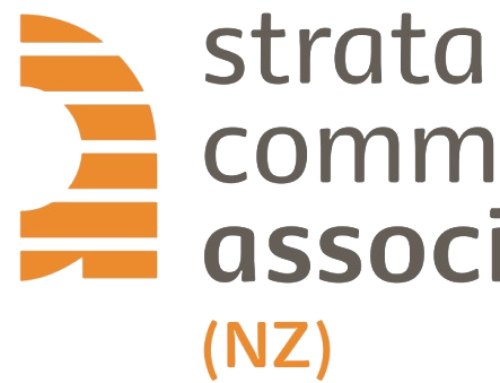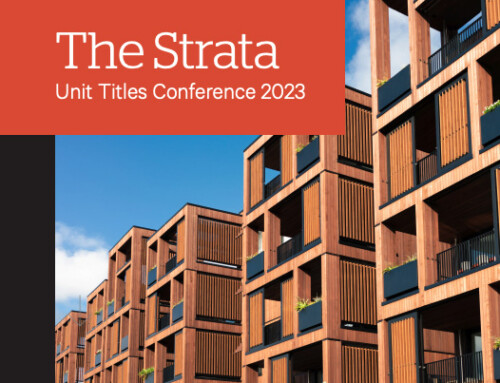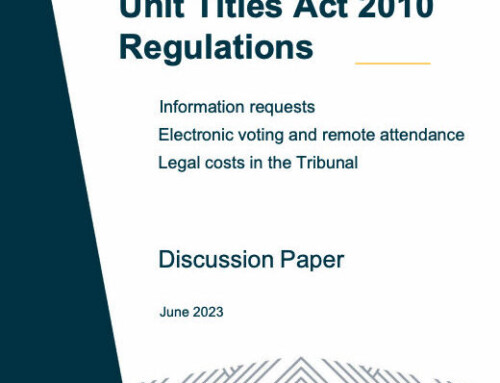Apartment and unit owners to benefit from proposed new laws, better regulated professionals.
Apartment and unit owners in New Zealand are being told to brace for major change, as the Government hints at sweeping law reforms for strata properties.
A recent announcement made by the Minister for Building and Housing indicates that the New Zealand Government is considering adopting a number of reforms put forward by an industry working group.
New Zealand’s strata property sector is currently valued at $40 billion and industry leaders are confident that this figure will dramatically grow, with the arrival of game changing programs, adopted from Australia’s $1.2 trillion sector.
The proposed reforms are set to focus on three key areas;
- Better disclosure rules to ensure people know earlier in the purchase process all relevant information about a unit or apartment and the governing body corporate.
- Accessibility of the dispute resolution processes and whether the Tenancy Tribunal is best placed to resolve disputes.
- The role of body corporate managers and their legal obligations.
One of the organisations supporting this push is Strata Community Association (SCANZ) and leaders say law reform is just the tip of the iceberg for the sector’s advancement.
“Alongside modernised laws, the sector is begging for regulated professionals and an accredited employment pathway and we’re in a position to deliver on both,” SCANZ President Jo Barreto said today.
SCANZ is a newly formed industry body for the strata sector, overseeing the rights of owners and the professionalism of body corporate managers; something that has in past been regrettably ignored.
SCANZ follows in the footsteps of Strata Community Australia (the peak body for Australia’s strata sector), and the positive impact had in Australia is expected to directly translate for owners and industry professionals in New Zealand.
“We’ve got great confidence knowing that our model has been tried and tested in Australia and it has helped shape a professional, progressive sector that strata property owners can have trust in.”
“When you have no professional benchmark for individuals and companies in a sector like strata property, things can go rogue pretty dramatically, and that’s exactly what we’re aiming to change through proposed reforms.”
“Body corporate “professionals” acting up is all too familiar a story and we hope SCANZ’s commitment to improving the sector, alongside our
Ms Barreto says beyond regulating industry behaviour however, property owners also deserve some assurances that trained professionals are in charge of their properties & funds, often worth millions.
“The next step for the Government must be supporting industry education programs, which not only up skills professionals currently within the sector, but also opens up a major employment pathway for the next generation.”
“Apartments and units are the future of New Zealand property and we’re adamant that amidst major development growth, there’s an opportunity to open up the next great job pathway.”
Ms Barreto says SCANZ is getting ready to roll out the first ever accreditation course for body corporate managers in New Zealand, and says this deserves some undivided attention from Government heavyweights.
“The A100 course we’re making available to industry professionals is voluntary for now, but we see scope for programs like this and others we have in mind being supported as a mandatory entrance step by Government.”
“Mandatory education and training for industry professionals would re-shape the sector not only in terms of the trust and confidence owners have in body corporate professionals, but also regarding the jobs and careers available.”
Ms Barreto says phase 2 of SCANZ’s education push will be vocational qualifications at a Certificate III, Certificate IV and/or a Diploma level, mutually recognised across Australia and New Zealand.
“Body corporate professionals with tertiary level training is something that benefits the entire sector and its long term growth, and we are eager to brief decision makers in Government on our plans to see these benefits, translate into a major employment pathway for all.”
Ms Barreto says the future of the sector will be largely impacted by the priority given by decision makers to the introduction of modern laws and an education pathway, and encourages key figures to extensively consult with industry.
“The success, and speed of reform measures happening in Australia’s $1.2 trillion sector right now have been largely to do with broad industry consultation, and ahead of advancements to our own sector, we encourage decision makers to open up the discussion to all stakeholders.”
“Ahead of major growth, it’s important any proposed reforms are done right the first time, so we eagerly await news from the Government on the next step.”







